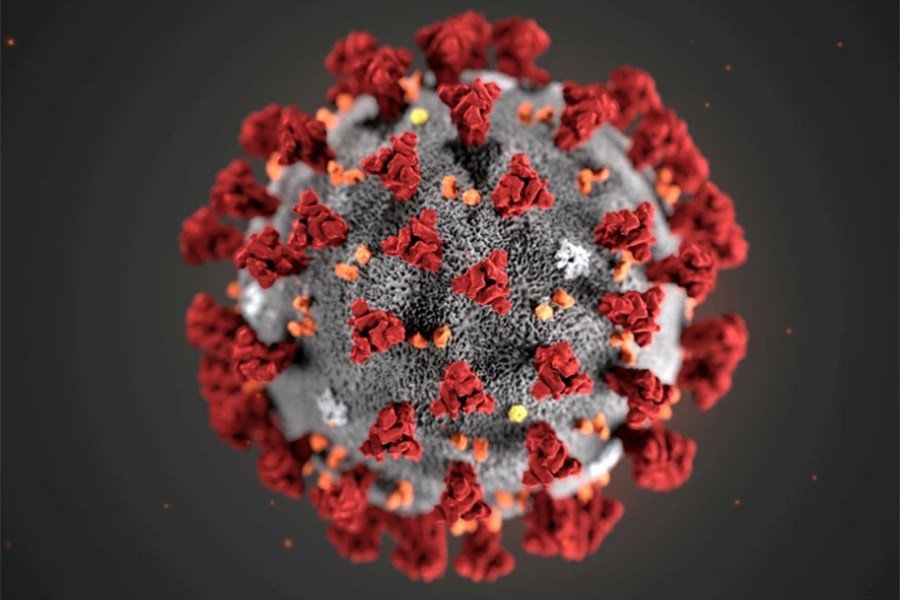The corona scare that has swept most parts of the world has, unwittingly or who-can-tell why, has seen people at the helm in this country saying things that most of them consider no more consequential than the self-possession they love to flaunt -- lest they look cowering and recoil in public eye. I wish some of them watched recent video clips of none other than the most unlikely panic-victim Donald Trump who recovering quickly from his earlier stance is now seen warning people to keep hands away from their faces (as much as possible), which he himself claims to be practising (his credibility apart, the point is he has been taken in, maybe this very first time). Not to speak of South Korea, China indeed, and Singapore -- leaders in these countries do not pretend to betray any sense of worry or even fright as they keep announcing steps to curb the corona outbreak.
No one among the global leaders has said his/her country is prepared to face the virus. But we did. One of our senior ministers whose portfolio in the cabinet demands he says something on the government's preparedness brashly said around a week back that the country is prepared - in the fashion of challenging the pandemic. Others, not so valiant, have been assuring the citizens of actions and measures in keeping with the globally followed protocols like social distancing, quarantining the suspects, setting up isolation wards in hospitals and also making protective kits available at fair prices. Fine. The Institute of Epidemiology, Disease Control and Research (IEDCR), the focal point on corona matters, has been briefing the media, clearly to assure everyone that the organisation is keeping a watchful eye on the situation by what it said close monitoring. A sensible citizen must not question the monitoring mechanism nor dispute the findings of IEDCR. And at the time of writing this piece, IEDCR appears to have streamlined some of its activities like collecting testing samples from the suspect-patients from their homes instead of having them to come.
The problem, as stated, is with those 'licensed' to speak as part of their roles as peoples' representatives. First, it was about schools -- shutting them down or not. Obviously, the issue emerged from examples elsewhere. The USA, immediately after a couple of people tested positive in California - a far larger space than whole of Bangladesh, announced total shutdown of schools and all educational institutions. This was followed soon in many other states with or without people showing corona symptoms.
For sometime, people in the social media here were expressing worries about schools not still declared closed. Curiously, another senior minister was found too innocent to respond that schools were better places than homes for kids to remain safe. And despite heated reactions from worried parents, many of whom shut their children at home, and BUET students abandoning classrooms on their own, the top notches kept vainly placating the parents' fear that translates: let it strike first, then, then …. There was a writ petition, too, at the High Court on the issue. Lately, call it grace under pressure or what you will, the education minister at a press conference announced shutting down schools and colleges. An example of typical reactive policy of the government at a time when being proactive was all it needed to prepare for the looming crisis.
What has, of late, come up to rip apart the complacency regarding preparedness is the quarantine issue. People retuning from corona-affected locations are briefly scanned for symptoms at the airport, which experts say become visible after at least two weeks' of being infected. Most of these returnees, except those with fever or cough, are allowed to go home and remain on self/home quarantine. Home quarantine for an ailment with little or no clue for treatment can hardly be a safe arrangement for those who may show symptoms at a later stage. It is thoroughly intriguing how this home quarantine thing assumed a safe-enough measure for the authorities. Most returnees, except a few, make it to their village homes straight from the airport where as common practice goes, relatives and friends throng to visit them. Quarantine is meaningless to them, and over and above, if one doesn't complain of symptoms (which may be dormant), what on earth can keep him away, shut in his own home, after years of separation from dear ones? There are reported cases of returnees who after weeks of arrival, supposedly in so called home quarantine, are now rushing to local and district hospitals where they are not receiving the care they need. It is not known how many of the district hospitals have isolation wards for such patients, let alone treatment devices.
As for those, especially the Italy-returnees who are being herded to the haj camp close to the airport, the situation is chaotic, fraught with mismanagement. The mismanagement and lack of coordination among government agencies got reported in the media in the past two-three days. The fuming returnees complain of utter mismanagement including lack of hygiene, food, drinking water, toilet facilities.
Preparedness for something as virulent and unforeseen as the corona virus is not easy -- not even for the far equipped governments with no dearth of resources. But having seen the virus spreading across frontiers, and a well-recognised safety protocol followed by affected countries, wasn't it expected that the state machinery would sit up to put things in place in a more decent and planned way, with whatever resources available? There are reportedly more people coming, and there may be others, too, at home who might show signs of infection requiring help.
Despite the few cases detected, Bangladesh is not yet corona-struck per se. One only hopes it stays away. However, in the event of a situation demanding more to be done, mapping detailed precautionary measures with regular follow-ups is no cowering business.


